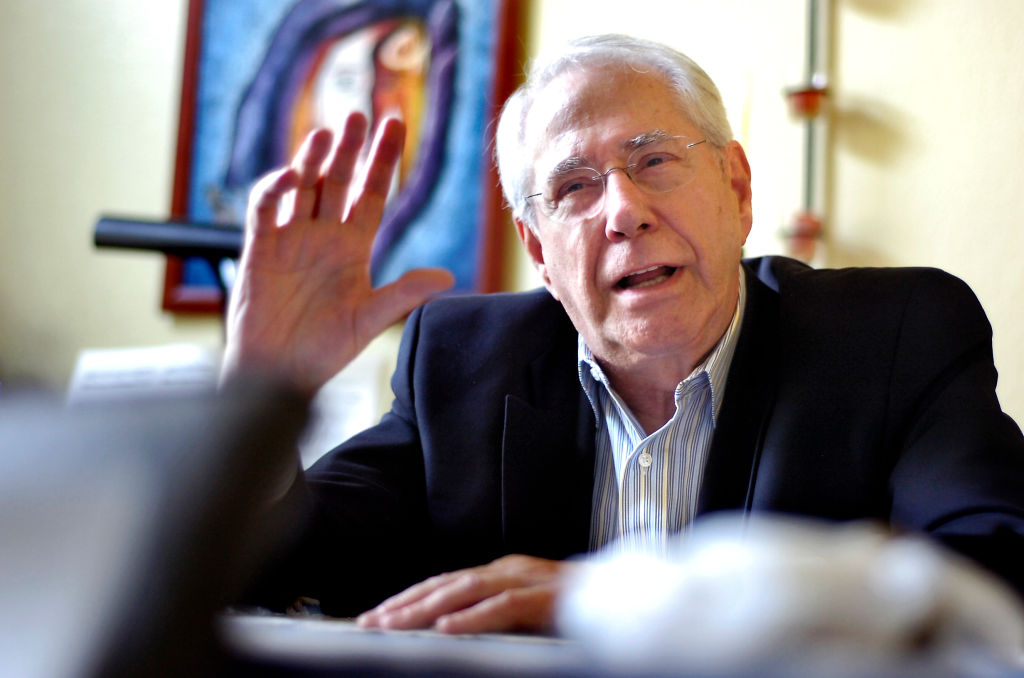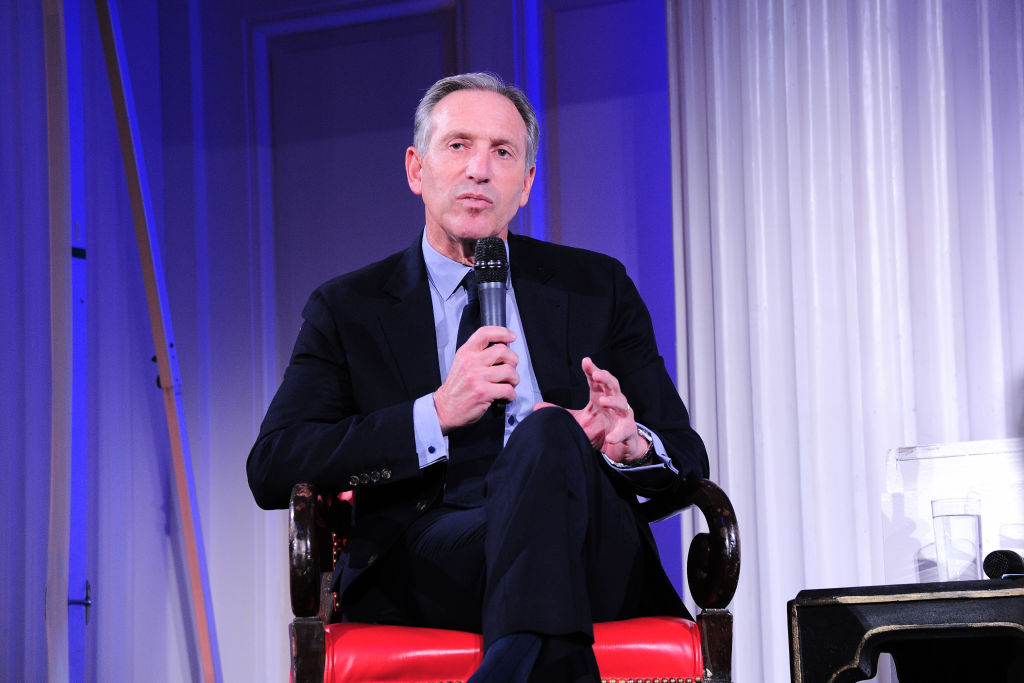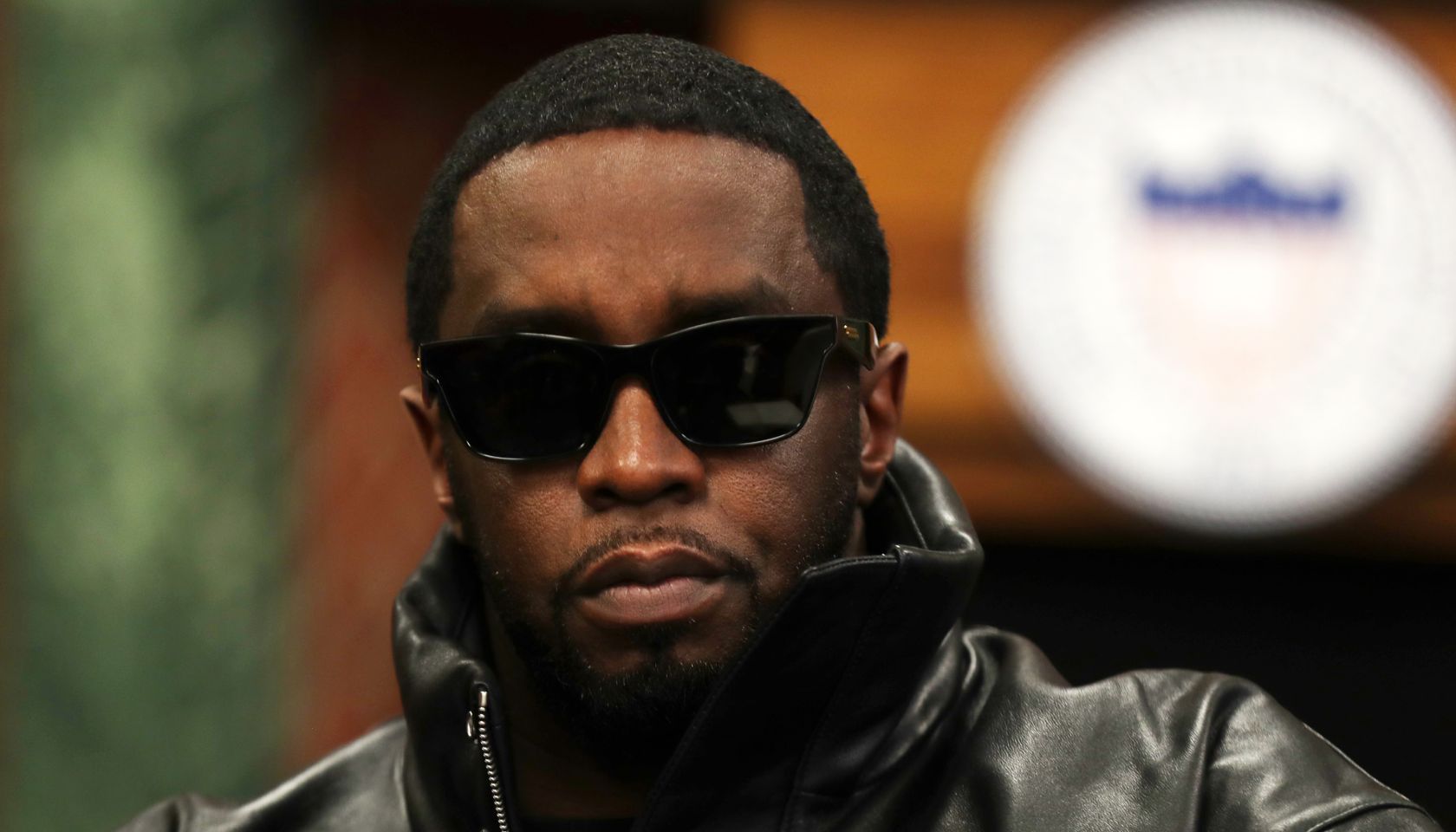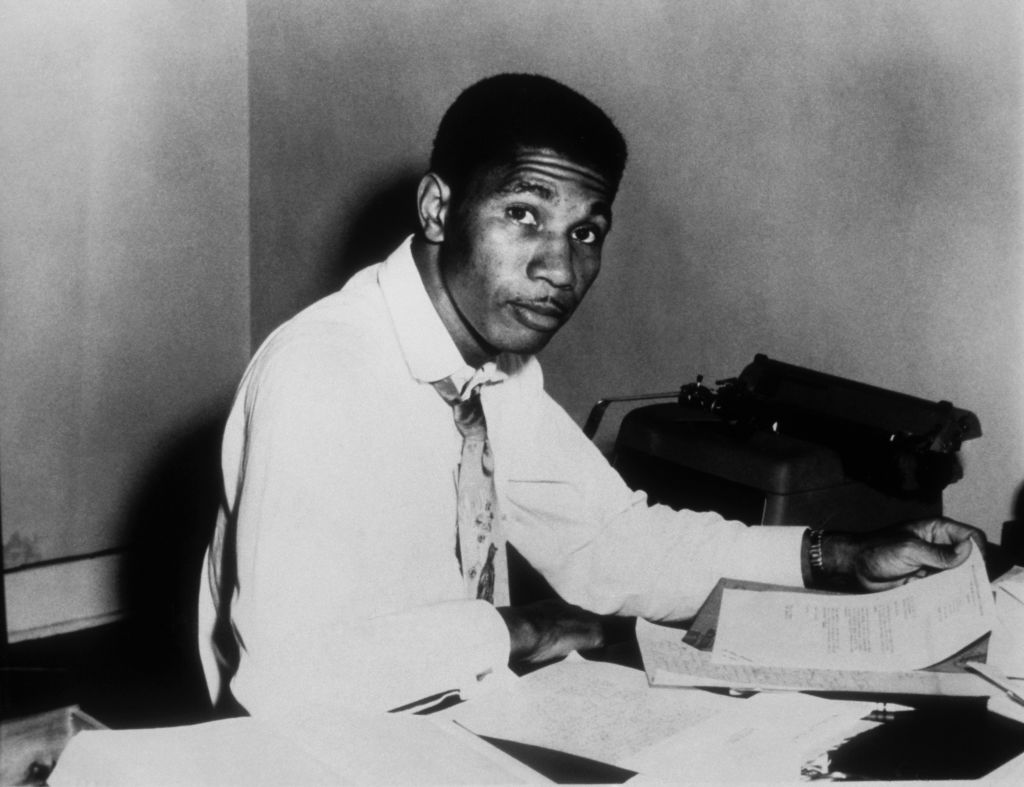UPDATED: 10:20 a.m. EDT, June 19 —
The House Judiciary Committee’s subcommittee on the Constitution, Civil Rights and Civil Liberties was holding a hearing on the reparations for slavery in what could be the beginning of progress being made on the contentious topic that has become a talking point on the 2020 campaign trail.
New Jersey Sen. Cory Booker, who is running for president, was scheduled to testify. After finding himself lagging in national polls, his testimony on Wednesday could further contextualize his stated position for reparations as well as give his candidacy an added boost.
You can watch a live stream of the House hearing below.
Booker introduced his own reparations legislation in April that was a companion piece to Texas Rep. Sheila Jackson Lee‘s own House resolution on reparations. “I am proud to introduce legislation that will finally address many of our country’s policies—rooted in a history of slavery and white supremacy—that continue to erode Black communities, perpetuate racism and implicit bias, and widen the racial wealth gap,” Booker tweeted at the time.
As we inch closer to primary season, perhaps no other single topic has managed to get as much attention as the argument surrounding reparations for descendants of slaves.
READ MORE: Americans Appear Ready To Support Reparations: Report
While rhetoric surrounding reparations has died down as of recently, Wednesday’s testimony was expected to thrust it back in the national spotlight, much like when a handful of candidates took the podium at the Rev. Al Sharpton‘s annual National Action Network convention in April to explain their plans for Black America should they be elected president. Each person was asked about his or her stance on using reparations to compensate Black descendants of slaves, and some of the responses left much to be desired.
One thing’s for sure: With talk about reparations being at a fever pitch during this election cycle, 2020 candidates better get well versed in the subject so as to not come across as uninformed.
READ MORE: U.S. Owes Reparations To African-Americans, UN Experts Say
Author Ta-Nehisi Coates, who was also set to testify on Wednesday, penned an essay in 2014 titled “The Case for Reparations” that laid out an argument in support of America making amends for centuries of disadvantaged generations of Black people. When Coates’ essay was published just five short years ago, only 6 percent of whites supported cash payments to the descendants of slaves, while only 19 percent of whites supported special education and job training programs to them. Now, a growing percentage of whites, Blacks, Independents, Democrats and Republicans said they believe the federal government doesn’t spend enough money on improving the conditions of African-Americans, according to the 2018 General Social Survey.
All that to say, there certainly is a ton of uncertainty surrounding the fate of reparations for Black people in America. Scroll down to see where all of the declared White House candidates stand, or sit, on the topic.
1. Joe Biden
 Source:Getty
Source:Getty
The former vice president’s current stance on reparations as it relates to next year’s election was unclear. However, he said in 1975 in no uncertain terms that he was totally against the idea.
“I don’t feel responsible for the sins of my father and grandfather,” Biden said at the time. “I feel responsible for what the situation is today, for the sins of my own generation. And I’ll be damned if I feel responsible to pay for what happened 300 years ago.”
2. Cory Booker
The New Jersey senator recently introduced a bill called the Commission To Study and Develop Reparation Proposals For African Americans Act. He has also advocated for baby bonds, which would offer all newborns $1,000, and then add up to $2,000 annually for children in low-income households until they’re 18.
Booker told the Root that his bill “will bring together the best minds to study the issue and propose solutions that will finally begin to right the economic scales of past harms and make sure we are a country where all dignity and humanity is affirmed.”
3. Pete Buttigieg
The Democratic mayor of South Bend, Indiana, has made it very clear that he was very much against monetary reparations.
“I haven’t seen a proposal for a cash transfer that people would be able to come together around and view as fair,” Buttigieg said in March. “But I absolutely believe that we need to have some kind of accounting for the persistent racial inequities today there by design because of part and present racism.”
4. Julián Castro
The former secretary of Housing and Urban Development is perhaps the most vocal proponent for reparations among all presidential candidates.
“I’ve long believed that our country will never truly heal until we address the original sin of slavery,” he told the audience at the National Action Network convention.
5. John Delaney
 Source:Getty
Source:Getty
The former three-term Maryland congressman has not said anything on record about reparations. While Delaney does have a portion of his campaign website devoted to his “Commitment to Black America,” it only provides statistics about economic inequality along racial lines and offers no apparent solutions.
6. Tulsi Gabbard
 Source:Getty
Source:Getty
The Hawaiian congresswoman has backed Texas Rep. Sheila Jackson Lee’s proposed legislation to form a commission to study whether black Americans should receive reparations for slavery. Aside from that, she seems to have been relatively quiet on the topic.
7. Kirsten Gillibrand
 Source:Getty
Source:Getty
At the National Action Network Convention, Gillibrand said “the reparations conversation is ‘long overdue,'” NBC News Ali Vitali reporter tweeted. “She adds here that she supports the bill that would establish a commission to study the issue.”
NEW YORK, NY – APRIL 5: Democratic presidential candidate Sen. Kirsten Gillibrand (D-NY) speaks at the National Action Network’s annual convention, April 5, 2019 in New York City. A dozen 2020 Democratic presidential candidates are speaking at the organization’s convention this week. Founded by Rev. Al Sharpton in 1991, the National Action Network is one of the most influential African American organizations dedicated to civil rights in America. (Photo by Drew Angerer/Getty Images) color image,photography,people,one person,horizontal,usa,new york city,headshot,talking,politics,annual event,president,election,democracy,presidential candidate,united states presidential election,candidate,politics and government,presidential election,2020,kirsten gillibrand
8. Mike Gravel
 Source:Getty
Source:Getty
The former U.S. senator from Alaska is one of the most outspoken candidates on reparations. His campaign website says the U.S. should “create a National Commission on Reparations” and “establish a National Reparations Trust Fund” that would be “funded by an infusion of $30 billion per year from government coffers.”
9. Kamala Harris
The California senator has been somewhat cagey when it comes to reparations, but did say she would sign the bill to explore the topic if she became president. Still, there was some uncertainty after she told NPR in March that reparations “means different things to different people.”
10. John Hickenlooper
The former governor of Colorado only recently took a stand on reparations and officially announced his support for Sheila Jackson Lee’s bill. But for some at the National Action Network convention, he wasn’t firm enough on the topic, so the audience pressed him.
“Yes I’m going to pass it,” he finally said.
11. Jay Inslee
Washington state’s governor was making climate change the sole focus of his campaign and previously seemed to avoid the topic of reparations until he was pressed on PBS NewsHour.
12. Amy Klobuchar
The Minnesota senator’s plans for reparations specifically do not include financial repayment to Black Americans. Watch her “Meet The Press” interview starting at the 16:31 point to get a better understanding of her policy:
“I believe we have to invest in those communities that have been so hurt by racism. It doesn’t have to be a direct pay for each person. But what we can do is, invest in those communities, acknowledge what’s happened.”
13. Wayne Messam
 Source:Getty
Source:Getty
When the the mayor of Miramar, Florida — one of three Black candidates running for president — was asked where he stood on reparations, he discussed everything from making ends meet to student loan debt forgiveness.
However, he did not offer a stance for or against reparations to American descendants of slavery and there is no mention of it on his official campaign website.
14. Seth Moulton
 Source:Getty
Source:Getty
U.S. Rep. doesn’t seem to have anything on his record about the topic of reparations. However, the congressional district he represents in Massachusetts has a population that is less than 3 percent Black and nearly 90 percent white.
Moulton’s campaign website is also bereft of any mention of reparations and instead lists the issues he was focusing on as foreign policy and national security; jobs; healthcare; climate change; and leadership.
15. Beto O’Rourke
The former Texas congressman who lost a close Senate race to Ted Cruz in the 2018 midterm elections recently reversed his position on reparations, telling the crowd at the National Action Network Convention on Friday that he would support Repo. Sheila Jackson Lee’s proposed H.R. 40 bill “to Study and Develop Reparation Proposals for African-Americans.”
Just weeks earlier O’Rourke said he wasn’t in favor of “traditional reparations for African-Americans for the legacy of slavery,” according to the Associated Press.
16. Tim Ryan
 Source:Getty
Source:Getty
The Democratic Ohio Congressman hasn’t expressed any interest in the topic of reparations even though he was one of the featured speakers at the 2019 National Action Network Convention. Vox said Ryan’s presidential pitch was focused on Rust Belt voters, which could hint at where his interests lie when it comes to reparations.
17. Bernie Sanders
The Vermont senator used the National Action Network Convention to offer his support for Rep. Jackson Lee’s legislation, as well. His stance was a departure from previous speeches that caused confusion about where he stood on reparations.
When asked about reparations during a town hall event on CNN in late February, Sanders said, “It depends on what the word means.”
18. Howard Schultz
 Source:Getty
Source:Getty
There is no mistaking how the former CEO of Starbucks feels about reparations: He is vehemently against it.
“I would rather look forward than look back,” he said in March, apparently not realizing that reparations would likely affect how recipients move forward with their lives.
19. Eric Swalwell
 Source:Getty
Source:Getty
The Democratic congressman from California shocked many with his candidacy, but the absence of any apparent stance on reparations shouldn’t be a shocker. His campaign website prioritized gun violence, education and health care as the issues he cared about the most. Absolutely no mention of the wealth gap widening along racial lines.
20. Donald Trump
 Source:Getty
Source:Getty
👀
21. Elizabeth Warren
The senator from Massachusetts has emerged from her own race-based scrutiny to become one of the most vocal champions in support of reparations for American descendants of slavery.
While Warren hasn’t called for direct monetary payments, she did say that “it’s time to start the national, full-blown conversation about reparations in this country.”
22. Bill Weld
 Source:Getty
Source:Getty
Not surprisingly, the former Republican governor of Massachusetts challenging Trump for the GOP’s presidential nomination has apparently said nothing on record about reparations.
23. Marianne Williamson
The author, lecturer and activist is all in on reparations and has used no uncertain language to back that up.
The Democratic candidate has proposed “a $200 billion – $500 billion plan of reparations for slavery, the money to be disbursed over a period of twenty years,” she wrote on her website. “An esteemed council of African-American leaders would determine the educational and economic projects to which the money would be given.”
24. Andrew Yang
The 44-year-old New York businessman has said he “he would ‘100 percent yes’ reinstitute the ability of the Department of Justice to study patterns and practices of law enforcement and use consent decrees,” according to ABC News.























